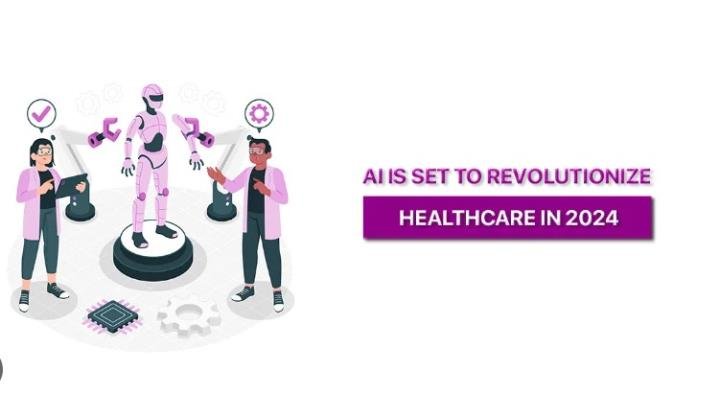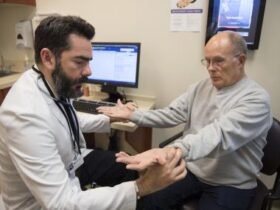The year 2024 marks a pivotal point in the fusion of artificial intelligence (AI) and healthcare. No longer confined to science fiction, AI is rapidly transforming how we diagnose, treat, and manage health, holding immense potential to improve health outcomes for everyone, everywhere.
From Precision Diagnostics to Personalized Care:
One of the most transformative applications of AI lies in its ability to analyze vast amounts of medical data, including images, genetic information, and electronic health records. This enables AI to:
Detect diseases earlier and with greater accuracy:
AI algorithms can analyze medical scans, such as X-rays and MRIs, to identify subtle abnormalities that might be missed by the human eye, resulting in more accurate diagnosis and better treatment results.
Predict disease risk:
By analyzing individual health data and risk factors, AI can predict an individual’s susceptibility to certain diseases, allowing for preventative measures and personalized interventions.
Develop personalized treatment plans:
AI can analyze a patient’s unique medical history, genetic makeup, and response to previous treatments to tailor treatment plans that are more effective and have fewer side effects.
AI-powered tools are already making a difference in various healthcare domains:
Oncology: AI algorithms are assisting in cancer diagnosis and treatment by analyzing tumor biopsies and recommending personalized treatment regimens.
Cardiology: AI is being used to detect heart disease from ECGs and predict the risk of future heart attacks, enabling early intervention and preventive care.
Mental health: AI-powered chatbots and virtual therapists are providing accessible mental health support, particularly in areas with limited access to mental health professionals.
Beyond Diagnostics and Treatment: AI’s Broader Impact on Healthcare:
The influence of AI extends far beyond diagnostics and treatment. It is also revolutionizing:
Drug discovery and development:
AI algorithms are accelerating the process of identifying promising drug candidates and optimizing their development, leading to faster and more efficient drug discovery.
Administrative tasks:
AI can automate administrative tasks such as scheduling appointments, managing medical records, and processing insurance claims, freeing up healthcare professionals to focus on patient care.
Who Invented AI in Healthcare?
While attributing a single inventor to AI in healthcare is challenging, several pioneers have made significant contributions. Some notable figures include:
Geoffrey Hinton:
A Canadian computer scientist known for his work on artificial neural networks, which are the foundation of many AI algorithms used in healthcare.
Fei-Fei Li:
An American computer scientist who co-founded ImageNet, a massive database of labeled images that has been instrumental in training AI algorithms for image recognition tasks in healthcare.
Demis Hassabis:
A British neuroscientist and co-founder of DeepMind, a leading AI research laboratory that has developed AI algorithms for protein folding and medical image analysis.
Challenges and Considerations:
While the potential of AI in healthcare is immense, it’s crucial to address the challenges and ethical considerations associated with its implementation:





